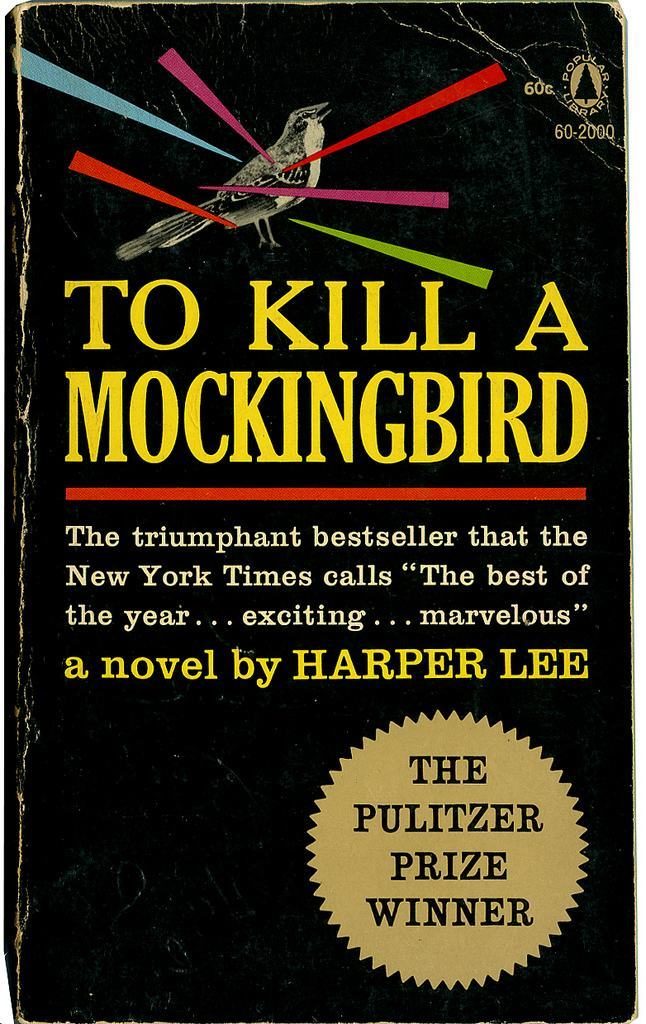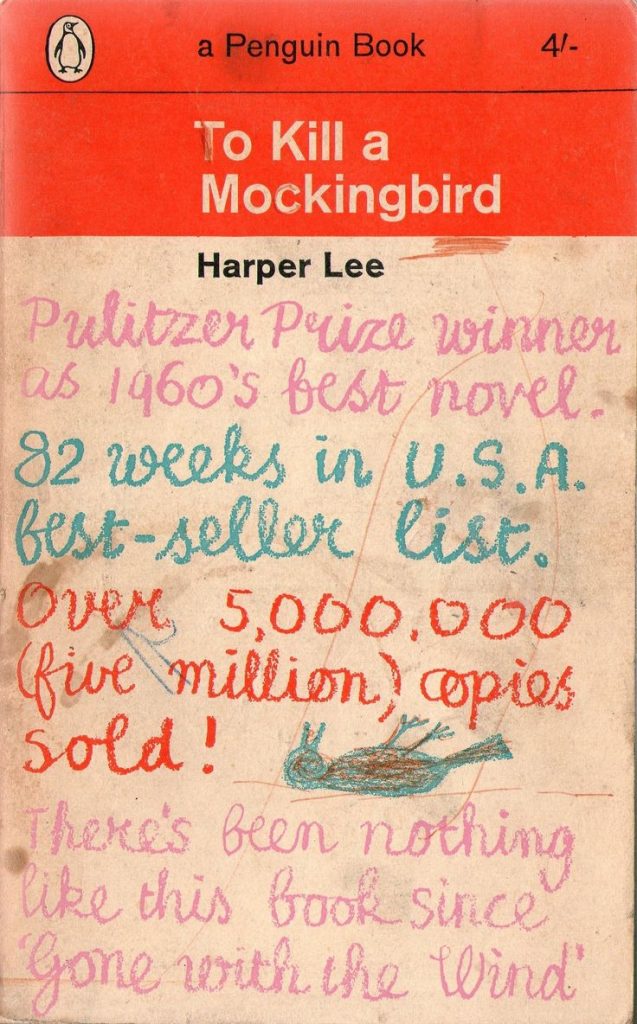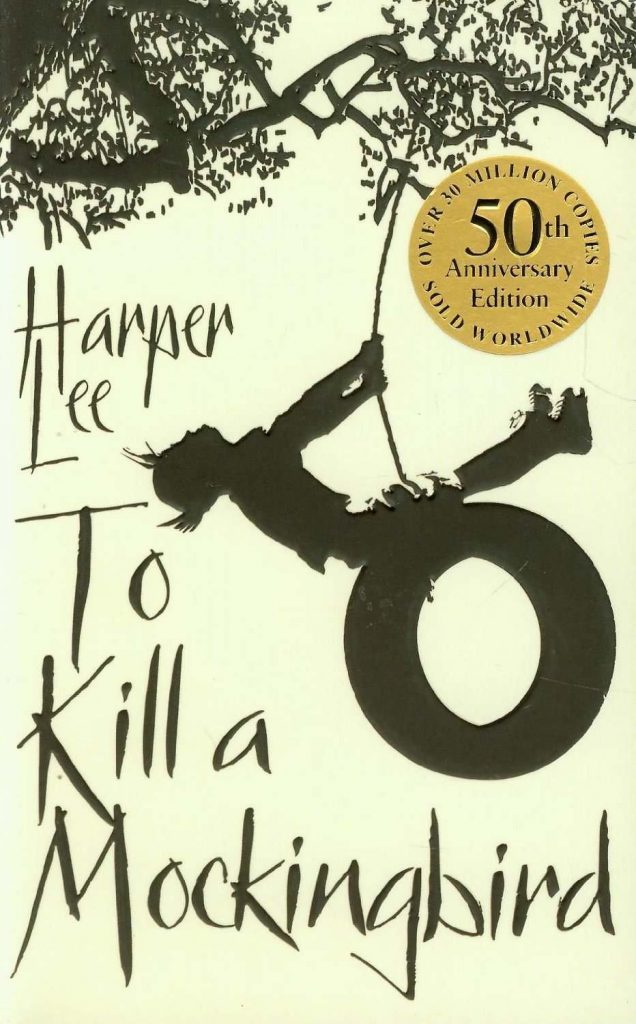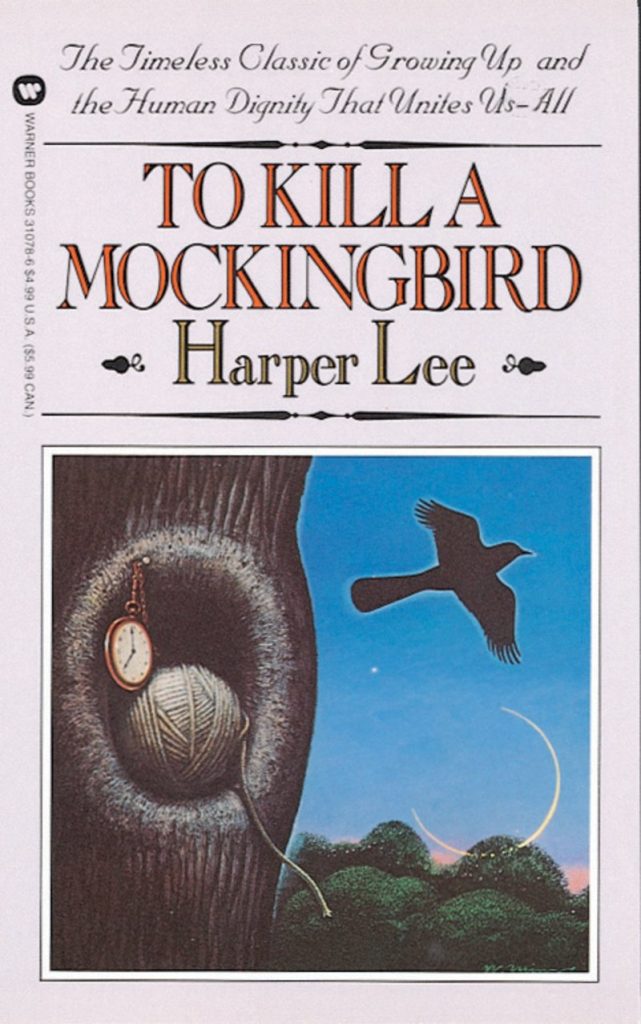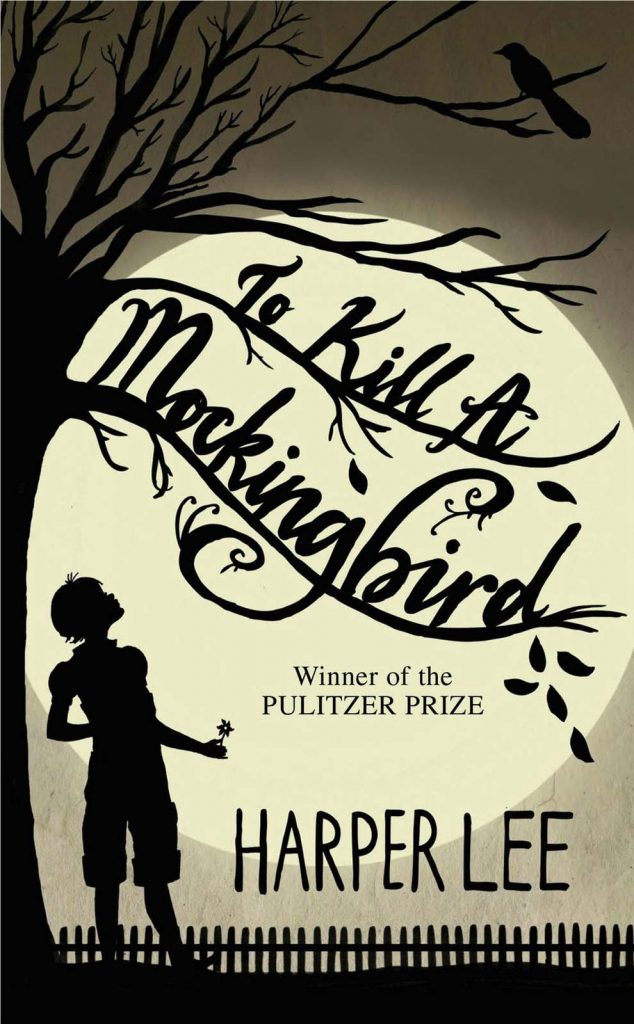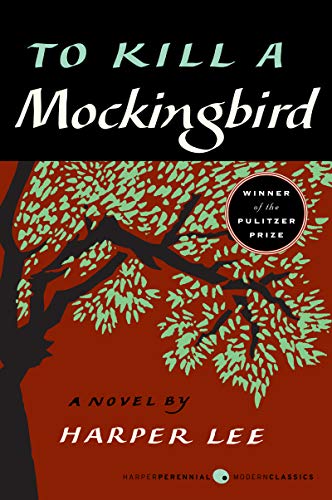First published in 1960, Harper Lee’s To Kill a Mockingbird is considered an American classic and won the Pulitzer Prize for Literature. Based loosely on Lee’s own childhood experiences, the novel takes place in the Deep South during the Great Depression. It is a coming-of-age story for the protagonist Scout Finch, a intelligent and tomboy who is six years old at the start of the novel. The two themes most central to the novel are racial inequality and the loss of innocence. The pivotal event of the novel is the trial of Tom Robinson, a black man who is accused of raping a white girl. Scout’s lawyer father Atticus is assigned to defend Tom Robinson. Despite providing ample reasoning and evidence that Robinson is innocent, Atticus loses the case and Robinson is shot dead while trying to escape jail. The novel’s title comes from a conversation between Atticus and Scout where Atticus states that “it’s a sin to kill a mockingbird” because they simply sing their song and never harm others. The mockingbird is used as a symbol for Robinson, who was innocent and never hurt anyone, yet was shot dead. This analogy is also used to describe Boo Radley, a recluse that befriends Scout and her brother Jem and later saves their lives.
To Kill a Mockingbird is one of the most frequently challenged books in the US due to its themes of rape and use of profanity and racial slurs. While numerous attempts have been made to ban the novel since its publication, two successful cases of banning have occurred within the past three years. In 2017, the novel was removed from 8th-grade classrooms in Biloxi, Mississippi due to a complaint from a parent citing the use of the N-word and the fear that the class’ reaction to the word may negatively affect her daughter. After protests from free speech advocates, the novel was re-added to the list of optional readings. However, parental permission was required to read it. The second case occurred in 2018 at schools in Duluth, Minnesota, where copies of both To Kill a Mockingbird and Adventures of Huckleberry Finn were removed from the classroom. Unlike the previous case, the book was banned due to the accumulation of complaints over the years. Free speech groups are calling for the restoration of both novels but no changes have yet occurred.
About the Author
Harper Lee was an American novelist best known for her work, To Kill a Mockingbird, where Lee’s own experiences growing up in the Deep South heavily inspired the events of the novel. Despite the enormous success of her first work, Lee did not publish any further works for years and remained largely hidden from the public eye. It was not until 2015 that To a Set a Watchman, a sequel to To Kill a Mockingbird, and the original manuscript for it, was published. Lee died February 19, 2016, at the age of 89.
Further Readings
National Endowment for the Arts page on the novel and Harper Lee https://www.arts.gov/national-initiatives/nea-big-read/to-kill-a-mockingbird
ALA’s list of challenged books, including information on To Kill a Mockingbird http://www.ala.org/advocacy/bbooks/frequentlychallengedbooks/classics
Washington Post article on the 2017 Biloxi banning https://www.washingtonpost.com/news/retropolis/wp/2017/10/15/the-ironic-enduring-legacy-of-banning-to-kill-a-mockingbird-for-racist-language/
Independent article on the 2018 Duluth banning https://www.independent.co.uk/schools-us-ban-books-kill-mockingbird-huckleberry-finn-minnestota-district-racial-slurs-a8201416.html
